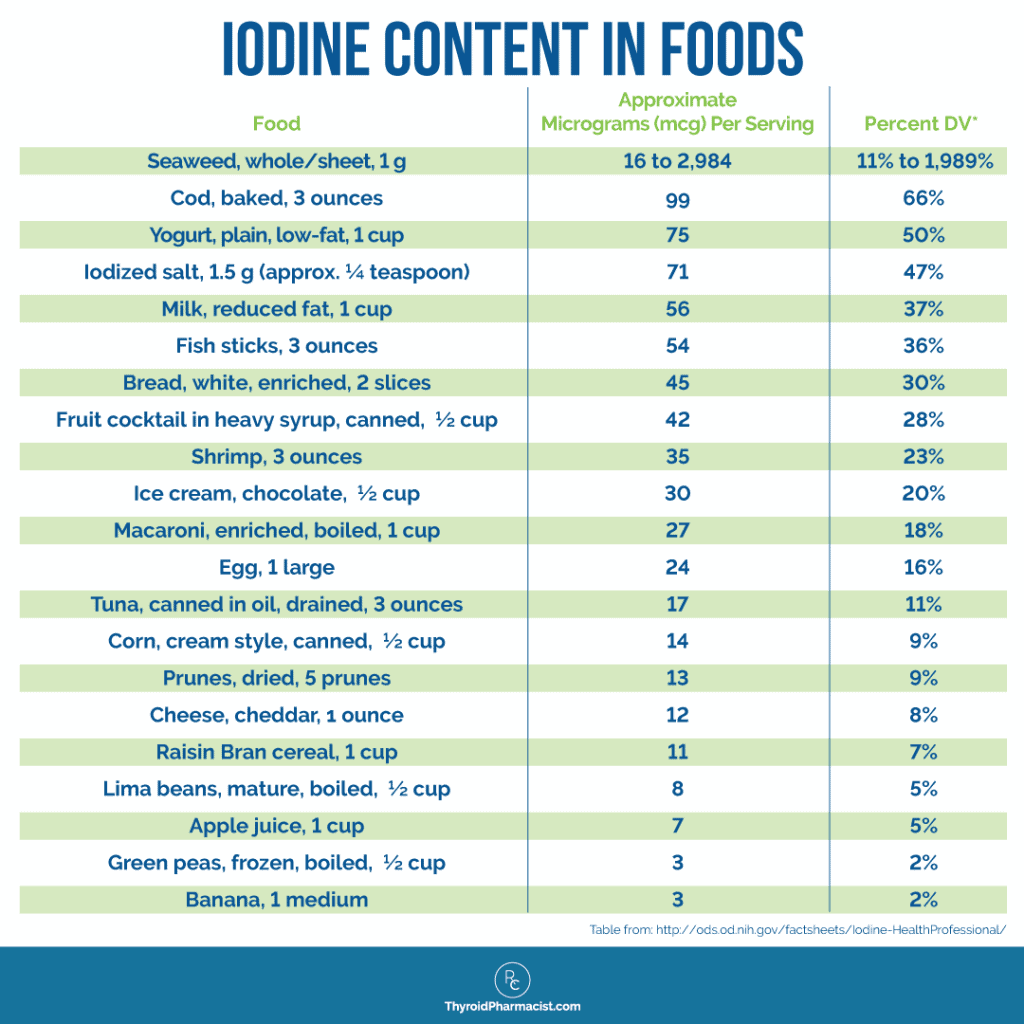

So what recurs? Iodine deficiency and goiters.

The FDA then advises Americans to slash their intake of sodium and salt. Overuse of salt led to other issues, such as hypertension in genetically susceptible people, water retention, and other conditions of sodium overexposure. Iodized salt was declared an incredible public health success story. The rampant goiters of the first half of the 20th century disappeared. Keep your family goiter free!” That was actually the slogan on the Morton’s iodized salt label, too. That’s why they passed a regulation encouraging salt manufacturers to add iodine, thought to be an easy and effective means for an uneducated, rural populace to obtain this essential nutrient. In 1924, the FDA became aware of the studies that linked goiters to lack of iodine, reversed with iodine supplementation. Up to 25% of the population can develop goiters without iodine supplementation, a larger percentage experiencing lesser degrees of iodine deficiency without goiter. This odd distribution for us land dwelling primates means that goiters are exceptionally common unless iodine is supplemented. It also means that foods grown inland do not have iodine. Humans hunting and foraging along the coast will be sufficient in iodine, while populations migrating inland will not. It means that crops and livestock grown along the coasts have some quantity of iodine. Iodine also leaches into the soil but only does so coastally. Iodine is found in the ocean and thereby anything that comes from the ocean, such as seafood and seaweed.

Goiters are becoming increasingly common and I see several each week in my office. (The treatment? Iodine, of course, not thyroid removal, as many endocrinologists advocate.) Your risk for heart attack, by the way, in the presence of a goiter is increased several-fold. Given sufficient time, an enlarged thyroid gland, or goiter, develops, signaling longstanding iodine deficiency. A perfect diet will not fully overcome the metabolism-limiting effects of an underactive thyroid. So iodine deficiency is one of the items on the list of issues to consider if you eliminate wheat with its appetite-stimulating opiate, gliadin, and high-glycemic carbohydrate, amylopectin A, and limit other carbohydrates, yet still fail to lose weight. This leads to lower energy (since the thyroid controls metabolic rate), cold hands and feet (since the thyroid is thermoregulatory, i.e., temperature regulating), and failed weight loss.

Likewise iodine: If you have an iodine deficiency, you experience lower thyroid hormone production, since T3 and T4 thyroid hormones require iodine (the “3” and “4” refer to the number of iodine atoms per thyroid hormone molecule). or you could just treat the scurvy causing it from lack of vitamin C. If you develop open sores all over your body and your joints fall apart, you could undergo extensive plastic surgery reconstruction and joint replacement. If you forget to do something nice for your wife on your wedding anniversary, I would fear for your life. It is no more optional than, say, celebrating your wedding anniversary or obtaining vitamin C. What if your diet is perfect–no wheat, no junk carbohydrates like that from corn or sugars, you are physically active–yet you fail to lose weight? Or you hit a plateau after an initial loss? While this has nothing to do with wheat and its destructive effects on human health, the issue of thyroid dysfunction and failed weight loss come up often enough that I thought it would be helpful to cover this important topic.


 0 kommentar(er)
0 kommentar(er)
